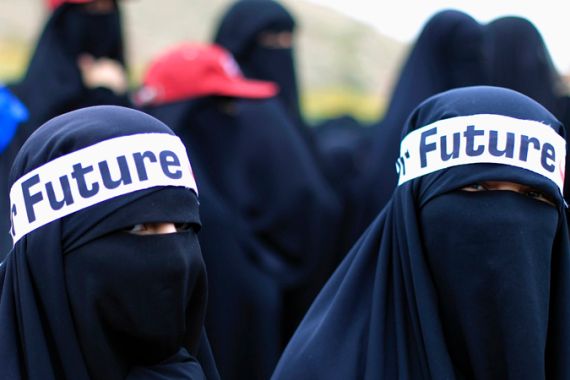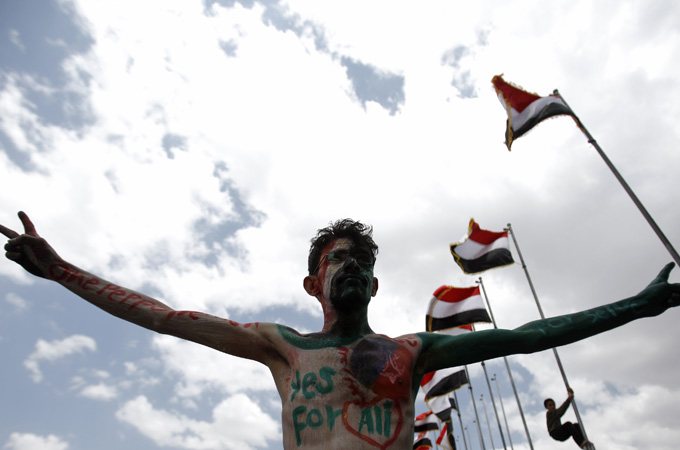Yemen youth want Saleh tried as criminal
Anti-government campaigners petition the UN to try their president at the International Criminal Court.

 |
| Yemen’s youth movement has organised an anti-government sit-in at Sanaa’s main square since February [Reuters] |
The youth movement behind Yemen’s months-long uprising against Ali Abdullah Saleh has called for the embattled president to face trial in the International Criminal Court.
In a letter delivered to the United Nations on Saturday, organisers of the youth movement said at least 861 people had been killed and about 25,000 others wounded since January, when mass anti-government demonstrations demanding Saleh’s resignation began.
“We call on the UN to refer Saleh, his sons and his gang to the International Criminal Court for their crimes against peaceful protesters,” said the letter addressed to Ban Ki-moon, the UN secretary-general.
They also called on the international community to freeze the bank accounts and assets of “Saleh, his family, and their supporters in the regime”.
The youth group, which has organised an anti-government sit-in at Sanaa’s “Change Square” since February, has come under repeated attack by pro-Saleh forces, but has so far refused to leave.
Saleh has also refused to step down and hand power to his deputy, Abdrabuh Mansur Hadi, despite continued calls to do so by the US, the UN and Gulf Arab leaders.
The youth group also called for an immediate halt to arms sales to Saleh’s regime.
‘Friendly fire incident’
Protests against Saleh’s rule have taken place against the backdrop of an escalating conflict in the country’s southern provinces, where government troops are battling al Qaeda-linked fighters.
Military sources said on Sunday that a Yemeni warplane mistakenly struck a military site in Zinjibar city, killing at least 30 Yemeni troops.
A defence ministry source, however, denied “the false news that Yemeni soldiers were killed in an accidental Yemeni plane strike”.
Hundreds of fighters linked to al-Qaeda overran Zinjibar and nearby cities in May.
Although Washington has condemned Saleh’s harsh crackdown on anti-government protesters, it continues to support his regime in its fight against al-Qaeda fighters.
Analysts say Saleh has sought to cling to power by making himself more valuable to Washington.
Long criticised as unreliable in the fight against al-Qaeda, Saleh has recently given US military units a far freer hand to act in his country, US and Yemeni officials say.
Yemeni security officials said that the US has been conducting multiple airstrikes a day in the south since May and that US officials finally have been allowed to interrogate al-Qaeda suspects, something Saleh had long resisted.
The co-operation has proved instrumental in hunting down Anwar al-Awlaki, the Yemeni-American cleric who was killed in Friday’s strike by US drones in a desert stretch of central Yemen.
Killed with him was Samir Khan, a Pakistani-American who was a propagandist for the group, and Ibrahim al-Asiri, the Saudi bombmaker behind 2009’s “underwear bomber” plot and 2010’s bomb-laden printer shipment to the US.